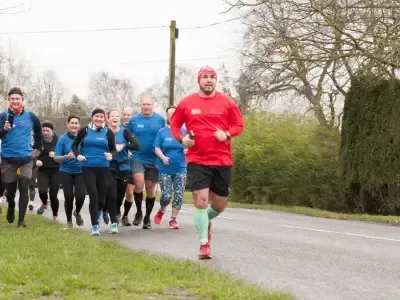Stepping Back Too Soon? My Take on Navigating
New Business Ventures
Welcome back, everyone. It's Kevin here, and today I wanted to delve into a topic that's been on my mind recently: can you step away from a business too soon? This question has been particularly relevant for me this past week as my business partner and I embarked on a new venture—a coffee shop café. The first week has been nothing short of frantic yet rewarding, with a steady flow of customers, which is often the most challenging hurdle when starting a business.
Over the past week, we’ve worked tirelessly to provide the best experience for our customers, ensuring our standards and quality remain top-notch. The café witnessed its first Saturday operations today, and it was, by all accounts, incredibly busy. Interestingly, I found myself juggling between my elder son's commitments, squeezing in my run, and then diving back into the café operations in the afternoon.
My business partner and I split our responsibilities; I handle the backend business functionalities, while he manages the operational aspects. This division of tasks played to our strengths, but it also left me pondering the delicate balance between stepping in operationally and maintaining a bird's eye view to fix processes and systems.
One of the core questions I've grappled with is whether I should roll up my sleeves and get hands-on in the café or stay back and look at the bigger picture. If I get too involved operationally, there’s a risk of me becoming a crutch for the business, making it over-reliant on my presence. Instead, I've focused on implementing backend solutions and planning enhancements like an online ordering system to streamline operations and improve efficiency.
This step would not only reduce wait times but also make our service more efficient and satisfactory for our customers.
We've seen record day after record day, and with expectations high for Sunday, I’ve decided that staying firm in my role as the systems and process fixer is the smart move. It’s tempting to jump in and help out in the kitchen; however, I believe that this approach might lead to dependency issues. If I become another pair of hands when things go awry, it could detract from addressing the root cause of the problems.
A crucial learning from my diary today is that sometimes the best way to solve issues is to observe and then fix them at a process or system level rather than throwing more resources or labor at the problem. This strategy may seem controversial to some, as it could appear that I'm avoiding the grind. But, in reality, it's quite the opposite. I work incredibly hard, but I choose to invest my hours where they add the most value—using amplification and leverage through people and processes.
To sum up, the key takeaway here is that stepping back to address problems from a higher level can often yield better long-term results than immediate hands-on solutions. Being smart about where and how you deploy your efforts can make all the difference in running a successful business.
I’d love to hear what you think about this topic. Drop your thoughts in the comments section, give this a like, and don’t forget to subscribe to stay updated. Every bit of your support helps us raise more funds and grow our community.
Thank you for your continued support, and see you next time!
Kevin Brittain



















